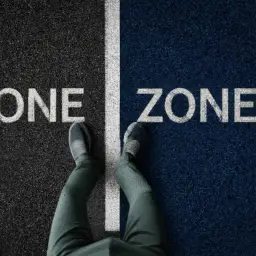You’ve probably heard of grit theory and how it’s been touted as the key to success. Its creator, Angela Duckworth, defines grit as a combination of passion and perseverance towards long-term goals. It’s the idea that if you work hard enough and have enough determination, you can achieve anything.
But is grit theory really all it’s cracked up to be? Many critics argue that grit theory oversimplifies the complexities of success, ignores systemic barriers, and places an unfair burden on individuals. In fact, there are many influential voices in the criticism of grit theory who have written extensively about its flaws.
In this article, we’ll take a closer look at 20 of these voices, including Paul Thomas, Alfie Kohn, and Nicole Mirra, and explore how they’ve challenged the mainstream narrative around grit and success.
Key Takeaways
- Grit theory defines success as passion and perseverance towards long-term goals, but its emphasis on individual achievement overlooks the broader societal factors that shape success.
- The use of grit in marginalized communities may reinforce harmful stereotypes and blame individuals for their own circumstances, ignoring the impact of systemic inequalities and lack of resources.
- Critics advocate for a more holistic approach to education that considers factors such as social support and mental well-being, and challenges the notion that success is solely determined by perseverance and grit.
- It is important to approach the concept of grit with a critical lens and consider the broader social and structural forces that shape individuals’ opportunities and experiences, such as socio-economic status, access to resources, and cultural bias.
Angela Duckworth
Angela Duckworth’s argument for grit may sound appealing, but it’s important to consider the potential negative effects it can have on individuals’ mental health.
Duckworth is one of the most influential voices in the criticism of grit theory, which posits that success is based on perseverance and passion. Her research findings indicate that the emphasis on grit can lead to negative outcomes, such as stress, anxiety, and burnout.
According to grit psychology, individuals are expected to push themselves to the limit in order to achieve their goals. However, this can cause individuals to ignore their own mental and physical health, leading to serious consequences.
Duckworth argues that instead of focusing solely on grit, we need to consider other factors that contribute to success, such as social support and mental well-being. Ultimately, while the concept of grit may initially seem empowering, it’s important to recognize the potential drawbacks and consider a more balanced approach to achieving success.
Paul Thomas
You may have heard of education researcher Paul Thomas, who challenges the notion that success is solely determined by perseverance and grit. Thomas is an influential voice in the criticism of grit theory, arguing that the concept is a form of victim-blaming. According to Thomas, grit theory puts the responsibility for success on individuals rather than acknowledging the systemic barriers that prevent many students from achieving their goals.
Critiques of Thomas’ views suggest that his approach to education may be too focused on the negative aspects of the system, rather than offering solutions for improvement. However, Thomas argues that his critiques are necessary for meaningful change to occur. He advocates for a more holistic approach to education that takes into account the social and economic factors that impact student success.
Ultimately, Thomas’ critiques of grit theory and his approach to education challenge educators and policymakers to consider the larger societal issues that affect students’ ability to achieve their goals.
Alfie Kohn
Now, let’s talk about Alfie Kohn and his critiques of the grit theory.
You may find his points particularly interesting as he challenges the idea of solely focusing on individual achievement and argues that collaboration and community should also be prioritized.
Kohn also criticizes the use of grit in education policy and questions its effectiveness.
Critique of the focus on individual achievement
However, some critics argue that the emphasis on individual achievement in grit theory overlooks the importance of external factors like socio-economic status and privilege. The critique of individualism in grit theory highlights how it fails to recognize the role of cultural background and societal structures in shaping an individual’s success. It assumes that success is solely dependent on personal qualities like perseverance and determination, ignoring the fact that not everyone starts at the same starting line.
Moreover, the impact of cultural background on success cannot be ignored. People from privileged backgrounds have access to resources and opportunities that aren’t available to those from less privileged backgrounds. In contrast, individuals from marginalized groups face systemic barriers that hinder their success, no matter how gritty they are. Therefore, critics argue that grit theory’s emphasis on individual achievement overlooks the broader societal factors that shape success.
In conclusion, while grit theory’s emphasis on individual achievement may motivate some individuals, it fails to address the systemic barriers that prevent others from achieving success.
Lack of attention to collaboration and community
It’s important to remember that success is not just about individual achievement, but also about collaboration and community support.
Collaborative learning is an essential aspect of success, as it allows individuals to work together, share ideas, and build upon each other’s strengths. When individuals come together to learn and grow, they create a supportive environment that fosters success and encourages everyone to reach their full potential.
Community building is equally important in achieving success. Building a strong community provides individuals with a sense of belonging, support, and encouragement. When individuals feel connected to their community, they’re more likely to feel motivated and empowered to pursue their goals.
A strong community also provides individuals with a network of support that can help them overcome challenges and obstacles on their path to success.
In a nutshell, success is not just about individual achievement, but also about collaboration and community building.
Criticism of the use of grit in education policy
Now that you understand how the grit theory lacks attention to collaboration and community, it’s important to also consider the criticism of its use in education policy.
Many influential voices in education have spoken out against the overemphasis on grit and its role in standardized testing. This overemphasis can lead to negative impacts on students’ mental health and well-being.
Critics argue that the focus on grit can create a toxic school environment that prioritizes test scores over student well-being. Students are often expected to push themselves to their limits, sacrificing their mental health in the process.
Additionally, this focus on grit can lead to a narrow definition of success that doesn’t account for the complex needs and experiences of individual students. As a result, it’s important to question the role of grit in education policy and consider the impact it may have on students’ overall well-being.
Nicole Mirra
Now let’s talk about Nicole Mirra and her critique of the use of grit in marginalized communities.
Mirra dismisses the idea that success is solely dependent on an individual’s level of grit and instead emphasizes the impact of external factors, such as systemic inequalities and lack of resources.
She also calls for a more nuanced understanding of success that takes into account different cultural values and experiences.
Critique of the use of grit in marginalized communities
Although proponents of grit theory argue that it can benefit marginalized communities, some critics argue that it places an undue burden on individuals to overcome systemic barriers beyond their control.
Intersectional analysis reveals that the concept of grit is often presented as a one-size-fits-all solution, ignoring the unique challenges faced by individuals from different backgrounds and experiences. Furthermore, cultural relevance is often overlooked in discussions of grit, with little attention paid to how cultural values and beliefs may shape individuals’ perceptions of success and perseverance.
In addition, critics argue that the emphasis on individual grit and resilience perpetuates the myth of meritocracy, which ignores the impact of systemic racism, poverty, and other forms of oppression.
The use of grit in marginalized communities may also reinforce harmful stereotypes and blame individuals for their own circumstances, rather than addressing the root causes of inequality.
Ultimately, while the concept of grit may have some benefits, it is important to approach it with a critical lens and consider the broader social and structural forces that shape individuals’ opportunities and experiences.
Dismissal of the impact of external factors
You might be overlooking the impact of external factors when discussing the success of individuals. The theory of grit suggests that success is solely dependent on an individual’s perseverance and passion towards their goals. However, this overlooks the fact that external factors such as socio-economic status, access to resources, and cultural bias play a significant role in determining an individual’s success.
Moreover, the emphasis on grit can have a negative impact on mental health. The pressure to constantly work towards one’s goals, without considering the impact of external factors, can lead to burnout, anxiety, and depression.
It’s crucial to acknowledge the role of external factors and provide support to individuals who face systemic barriers in achieving their goals. Failure to do so perpetuates the narrative that success is solely dependent on an individual’s grit, which can be harmful and dismissive of the challenges faced by marginalized communities.
Need for a more nuanced understanding of success
It’s time to rethink our understanding of success and recognize that it’s not just about individual perseverance and passion. The concept of grit theory, which emphasizes the importance of grit and resilience in achieving success, fails to acknowledge the impact of external factors such as socioeconomic status, race, and gender.
Alternative perspectives suggest that success is a nuanced concept that requires a more complex understanding. Nuanced success means recognizing that success is not solely determined by individual traits but is instead shaped by various social, economic, and cultural factors.
A more nuanced understanding of success acknowledges that not everyone has equal opportunities or resources to achieve success. It also recognizes that there are different definitions of success and that what may be considered successful for one person may not be the same for another.
By embracing a more nuanced understanding of success, we can move away from the one-size-fits-all approach of grit theory and create a more inclusive and equitable definition of success.
Benjamin Riley
Now, let’s talk about Benjamin Riley and his critique of grit theory.
You’ll be interested to know that Riley argues that grit cannot be seen as a panacea for success, and that we need to broaden our definition of success beyond just individual achievement.
Additionally, he emphasizes the importance of focusing on equity and justice in education, rather than just promoting a ‘pull yourself up by your bootstraps’ mentality.
Critique of grit as a panacea
Critiquing grit as a cure-all, some influential voices argue that the theory oversimplifies complex issues and ignores systemic inequalities. Overemphasis on grit and a narrow definition of success can lead to blaming individuals for their own failures and ignoring the impact of larger societal factors. Additionally, the idea that anyone can achieve success through grit alone disregards the countless barriers that exist for marginalized communities, such as lack of access to resources and discrimination.
Consider the following:
- Grit is not a substitute for systemic change
- Success is not solely determined by individual effort
- The glorification of grit can perpetuate harmful narratives around meritocracy
It’s important to recognize that while grit may be a valuable trait, it’s not a panacea for all of society’s problems. Critiquing grit theory doesn’t mean dismissing the value of hard work and perseverance, but rather acknowledging the limitations of an individualistic approach to success. By recognizing the systemic barriers that exist, we can work towards creating a more equitable society where everyone has the opportunity to thrive.
Need for a broader definition of success
You need to expand your definition of success beyond just hard work and determination if you want to create a more fulfilling and meaningful life.
While grit theory emphasizes the importance of perseverance and passion in achieving success, it fails to acknowledge the influence of external factors such as socioeconomic status, access to resources, and systemic barriers.
A broader definition of success requires a nuanced understanding of the complex and often interconnected factors that shape one’s opportunities and outcomes.
Success should not be limited to individual achievement, but should also encompass the impact one has on their community and the world.
A broader definition of success recognizes the importance of empathy, collaboration, and social responsibility in creating a more equitable and just society.
It’s time to move beyond the narrow view of success as a product of hard work and determination, and embrace a more holistic and inclusive understanding of what it means to lead a successful life.
Need for a focus on equity and justice
If you want to create positive change in the world, it’s important to focus on equity and justice. The same goes for the implementation of grit theory.
Equitable implementation means that all students have access to resources and support, regardless of their background or socioeconomic status. This is important because students who come from disadvantaged backgrounds often face more obstacles and barriers to success than their more privileged peers. By ensuring that all students have equal opportunities to develop their grit and resilience, we can help level the playing field and reduce the achievement gap.
However, we must also consider the social justice implications of grit theory. Some critics argue that the focus on individual grit and resilience can lead to a victim-blaming mentality, where students who struggle are seen as simply not trying hard enough. This ignores the systemic barriers and inequalities that many students face, such as poverty, racism, and discrimination.
To truly promote equity and justice, we need to address these broader societal issues and work towards creating a more just and equitable education system for all students.
Carol Dweck
When you read Carol Dweck’s work on the growth mindset, you can see how it challenges the fixed mindset often associated with grit theory. Dweck’s contribution to grit theory shows that intelligence and abilities are not fixed traits, but can be developed through dedication and hard work. This is in contrast to grit theory, which emphasizes perseverance and passion without acknowledging the role of growth and development in achieving success.
Dweck’s work is important in critiquing grit theory’s impact on education policy, which often promotes a one-size-fits-all approach to student success. By emphasizing the growth mindset, Dweck argues that educators should focus on teaching students how to learn and develop their abilities, rather than simply pushing them to work harder.
This approach is more equitable and just, as it recognizes that not all students have the same starting points and that success is not solely determined by grit and perseverance.
Frequently Asked Questions
What is grit theory?
Grit theory is a concept that emphasizes the importance of perseverance and passion for long-term goals. Developed by psychologist Angela Duckworth, the theory suggests that individuals with grit are more likely to achieve success than those without it.
The benefits of grit include increased motivation, resilience, and the ability to overcome obstacles. However, there are also limitations to the theory, as it can lead to an unhealthy focus on achievement and a neglect of other important aspects of life.
It’s important to find a balance between grit and other values such as compassion and mindfulness.
How did these influential voices become critics of grit theory?
To understand why some individuals have become critics of grit theory, you have to examine the evolution of the criticism. Initially, the theory was praised for emphasizing the importance of perseverance and passion in achieving success.
However, as its popularity grew, more researchers began to critique the theory’s oversimplification of complex issues such as structural inequality and the role of socioeconomic factors in shaping outcomes. These influential voices have raised concerns about the potential harm of promoting grit as the sole determinant of success.
Their critiques have also had an impact on research, prompting a shift towards more nuanced and intersectional analyses of achievement.
What are some of the main criticisms of grit theory?
When it comes to Grit Theory criticisms, there are several important points to consider. One of the main concerns is the validity of the theory itself. Some experts argue that the concept of grit is too simplistic, and that it ignores important factors like social context and structural barriers.
Additionally, some critics argue that the emphasis on individual perseverance and effort can be harmful, as it may place undue pressure on individuals who are struggling.
Finally, many experts point to the fact that Grit Theory has not been extensively tested or validated, and that more research is needed before it can be considered a reliable approach to understanding achievement and success.
Overall, while Grit Theory has gained popularity in recent years, there are valid concerns about its effectiveness and accuracy that must be taken seriously.
What alternative approaches do these critics suggest?
If you’re looking for an alternative approach to grit theory, it’s important to consider the limitations of grit in diverse populations. While grit may be a useful concept for some, it doesn’t always take into account the importance of resilience.
Resilience involves not just perseverance, but the ability to adapt to changing circumstances and bounce back from setbacks. Some critics argue that by focusing too narrowly on grit, we may be overlooking the importance of other factors, such as social support, cultural values, and systemic barriers.
Instead of emphasizing grit alone, they suggest a more holistic approach that takes into account the complex social and cultural factors that shape individual success.
How has the criticism of grit theory influenced education and society as a whole?
The criticism of grit theory has had a significant impact on education and society as a whole. Many have questioned the validity of the theory and its implications for students, particularly those from disadvantaged backgrounds.
As a result of this criticism, educators and policymakers have begun to explore alternative approaches to teaching and learning, such as emphasizing the development of social-emotional skills and promoting a growth mindset.
Additionally, there’s been a societal response to the criticism, with some questioning the broader cultural and economic factors that contribute to the emphasis on grit and individual achievement.
Overall, the criticism of grit theory has sparked important conversations and shifts in thinking about how we approach education and success.
Conclusion
So, there you have it. You’ve just explored the voices of 20 influential critics of grit theory. From Angela Duckworth, the theory’s creator, to Alfie Kohn, who believes the theory is just another way to blame students for their own struggles, to Carol Dweck, who sees the value in grit but warns against overemphasizing it, these voices offer a range of perspectives on the concept.
By listening to and considering these critiques, we can gain a deeper understanding of the potential limitations and shortcomings of grit theory.
As we continue to explore the role of grit in education and beyond, it’s important to remain open to different viewpoints and to engage in thoughtful, critical conversations about how best to support individuals in achieving their goals.










































































































